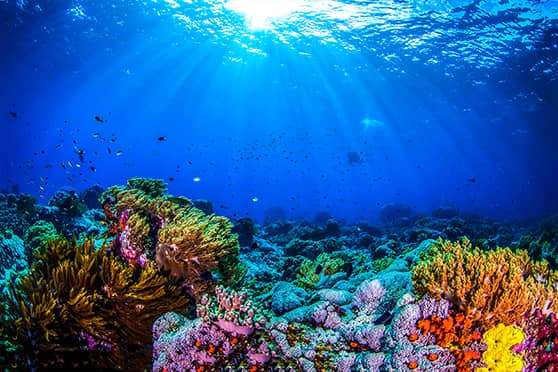Summary
MSc/MTech courses in Oceanography can be taken after completion of BSc/BTech in different scientific or engineering disciplines
Calcutta University offers a postgraduate in Oceanography/Marine Science
With the climate crisis casting a shadow on our planet’s surface that is mostly covered by water, there has never been a better time to focus on the importance of ocean conservation and underwater exploration. After doing your BSc/BTech in a scientific discipline, you can take up Oceanography, also known as Oceanology, in your master’s course to study oceans — their patterns of waves, geophysical fluid dynamics, plate tectonics and the sea floor.
What is Oceanography
Oceanography is the study of the physical, chemical, and biological features of the oceans. It explores how the oceans came into being and have evolved over the years. It is also the study of plants and animals in the ocean and their interactions with the marine environment. As an oceanographer, you’ll be looking into the secrets behind the creation of the plant and study ecosystem dynamics, currents, waves, ocean fluid dynamics, ocean geology, different chemical substances found in oceans and their physical properties.
Studying Oceanography
- You need to clear your Class XII board exams with Physics, Chemistry and Biology as compulsory subjects.
- After completion of your board exams, you need to obtain a BSc degree in Physics/Chemistry/ Geology/ Zoology/ Botany/ Microbiology/Fishery Science/ Geology/Agriculture/Applied Sciences or a related field with at least 50% aggregate.
- You can also obtain a Bachelor of Technology (BTech)/ Bachelor of Engineering (BE)/Associate Member of Institution of Engineers (AMIE) degree in Civil Engineering or Environmental Sciences with at least 60% aggregate.
- After doing your bachelor’s course, you can pursue an MSc course in Oceanography/Marine Science/Marine Biology/Marine Geology/Aquatic Biology and Fisheries for two years.
- After completing your Engineering bachelors, you can pursue a Masters of Technology (MTech) in Ocean Technology & Management/Ocean Engineering.
- After obtaining your master’s degree, you can pursue MPhil or PhD in Oceanography. Many institutes, including Jadavpur University, offer such courses.
Courses in Oceanography:
- MSc in Oceanography
- MSc in Marine Biology
- MSc in Marine Science
- MTech in Ocean Engineering
- MTech in Ocean Technology
Institutes in India that offer MSc courses in Oceanography:
- Calcutta University, Kolkata
- Andhra University, Andhra Pradesh
- Mangalore University, Karnataka
- University of Kerala, Kerala
- Berhampur University, Odisha
- Karnatak University, Karnataka
- Alagappa University, Tamil Nadu
Institutes in India that offer MTech/ME courses in Oceanography:
- IIT Madras, Tamil Nadu
- Techno India University, West Bengal
- Cochin University of Science and Technology, Kerala
- Amity University, Rajasthan
- University Hyderabad, Andhra Pradesh
Job roles with a degree in Oceanography:
-
Biological oceanographer: They conduct research on plants and animals that live in oceans, conduct studies on their natural environment, conduct experiments, collect data, and monitor the activities of aquatic animals and plants.
-
Chemical oceanographer: They investigate how chemical substances in the ocean interact with each other and observe its results. They also monitor how biological, geological and physical factors influence the ocean's chemistry. It’s their responsibility to investigate the effects of pollutants on seawater and marine life.
-
Geological oceanographer: They research seafloor formation, composition, and history. Their primary job is to thoroughly investigate sediment characteristics such as size, shape, colour, weight, age, chemical properties, origin, distribution and transport.
-
Physical oceanographer: They use satellite technology to study the movement of waters and the forces that cause motion, such as winds, waves, and tides. They also investigate the interactions of the ocean with land, atmosphere, weather and climate.
-
Marine geologist: They determine which underwater sites contain mineral resources and are safe for extracting natural resources. They plan surveys for geological, geochemical and geophysical data collection to determine facts, principles and reasons.
-
Petrologist: They explore oceans for new oil and gas fields. They are in charge of conducting geophysical and seismic surveys.
Last updated on 16 Feb 2022

